The “Narrative of Aging” conference brought together a house full of people interested in the topic, this Wednesday 6th, in the auditorium of the NOVA University of Lisbon. It was a moment of sharing and reflection on ageing, bringing together people and projects in a comprehensive and interdisciplinary approach.
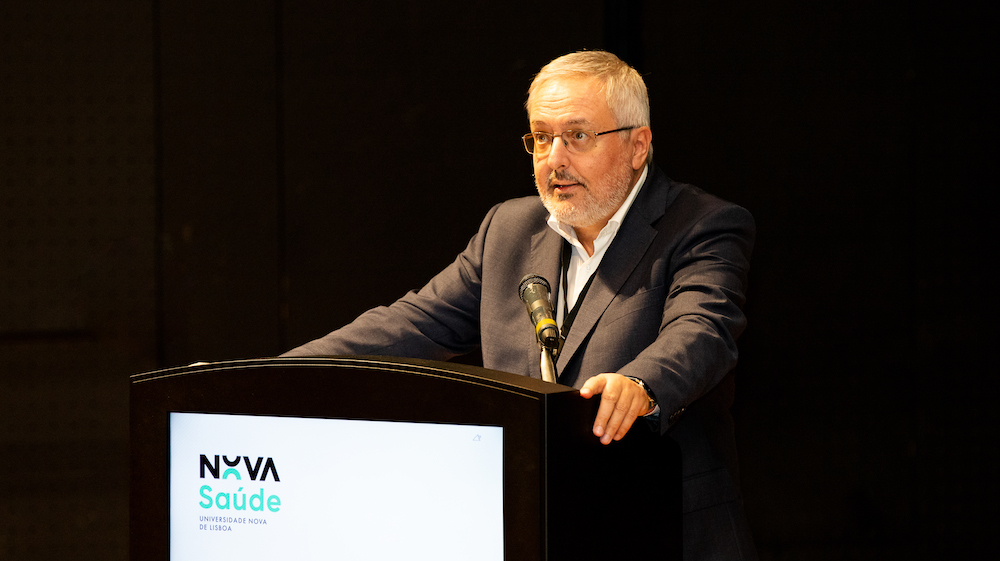
Cláudio Soares, Vice Rector for Health at the University, opened the session by stressing the importance of this holistic perspective: “We need to look at the global process and not reduce everything to a medical perspective centred on the disease”. And he also highlighted the diversity of areas involved: “From molecular, economic and social aspects to current and future technologies, from social prescribing to literature – we will learn a lot from this diversity.” Finally, he argued that, like the adage “it takes a village to raise a child”, it also takes “different skills to deal with people throughout their lives”.
Sharing knowledge to find solutions
Organised by the NOVA Health Ageing group, one of the eight groups of the NOVA Health platform, the conference aimed to give visibility to the work carried out at NOVA on ageing, promoting the exchange of knowledge and the creation of synergies between professors, researchers and students from the different schools and institutes.
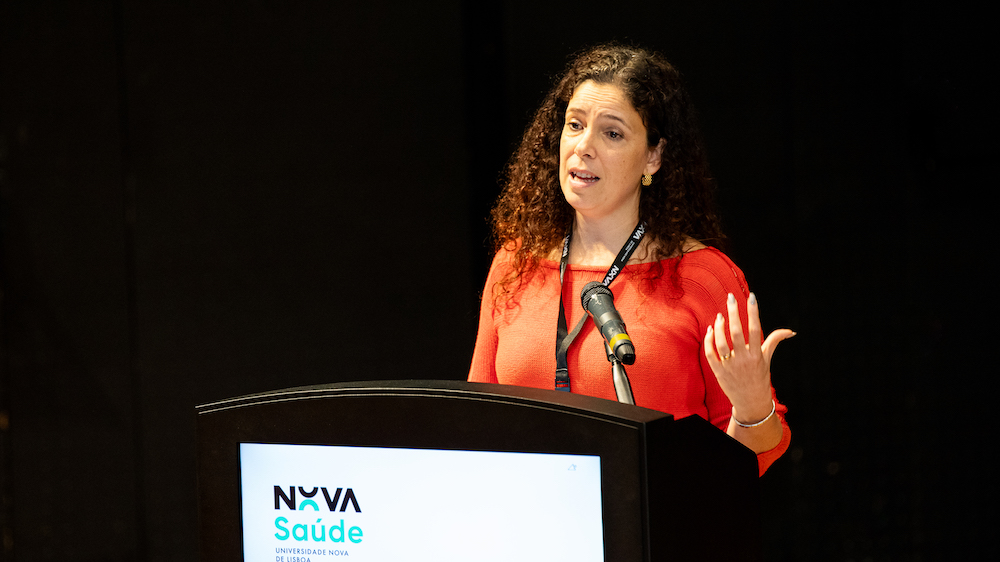
The first panel focused on ageing processes, effects and emerging challenges. Ana Rita Pedro, a researcher at NOVA’s National School of Public Health, presented social prescribing as an innovative strategy to combat loneliness among the elderly. “It is a bridge between health care and existing community solutions – whether in promoting healthier lifestyles, personal development or cultural participation, among many others,” he stressed, also highlighting the urgency of these solutions given the scenario we have: “24% of the population is 65 years or older and one in four lives alone – and of these, between 14% and 36% feel lonely”.
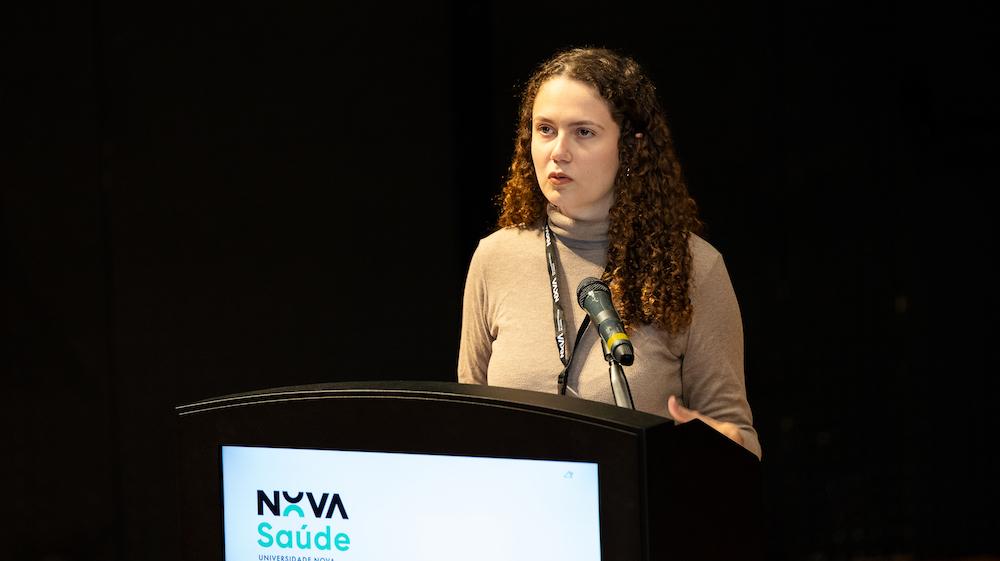
Ana Luísa Moraes, from NOVA FCSH, brought a literary perspective to the debate, using Alice Munro’s short story Mrs Cross and Mrs Kidd to reflect on the impact of institutionalisation on the identity of older people. He argued that “ageing does not have to be a disadvantage” and highlighted how the work reveals the need for recognition and the silent resistance to the idea that people become invisible as they age. He concluded by emphasising the role of literature as “a powerful tool for illuminating the social and psychological challenges of ageing”.
Longevity, care and end of life
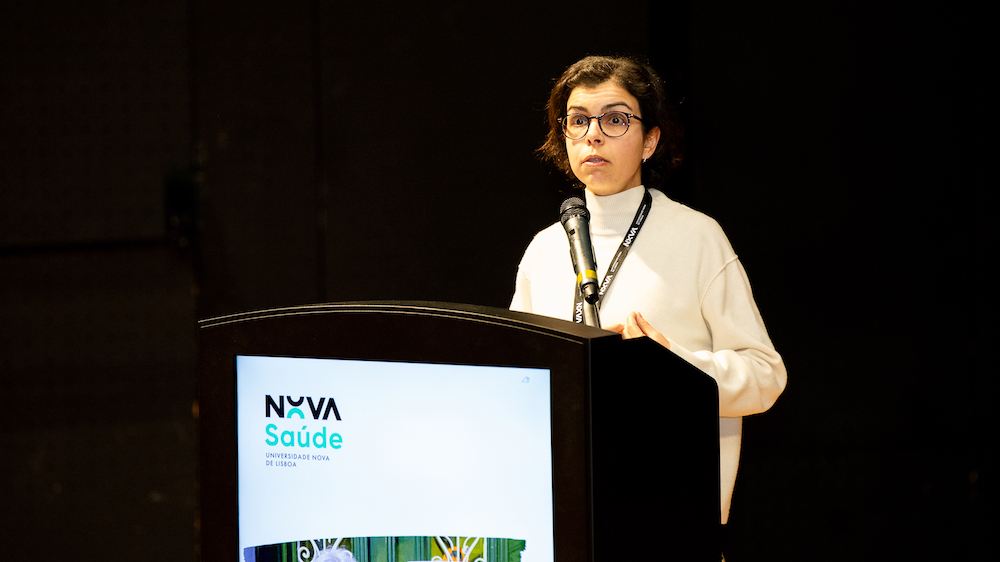
The second panel looked at the economic and social aspects of longevity. Carolina Santos (Nova SBE), presenting a paper co-authored with Pedro Pita Barros, showed data on the economic impact of ageing in Portugal. Making an important distinction – “longevity is the increase in average life expectancy; ageing is the way we deal with this process” – she warned of the challenges we face as one of the oldest countries in the European Union: “What we see is that the older population has greater difficulties in accessing health care”. She also highlighted loneliness as a critical factor: “Its impact on people’s health is comparable to that of cancer“.
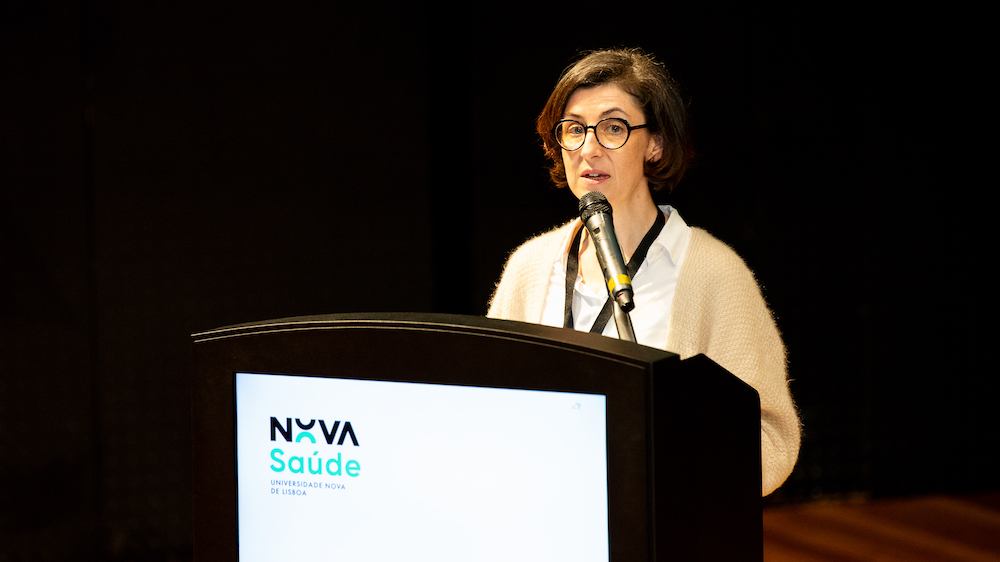
Matilde Gonçalves of NOVA FCSH followed with the presentation Escola da Palavra: (re)signifying life through words. The researcher began by sharing a personal memory – showing a photo of her grandfather – as she recounted how he taught her to fish for trout with pumpkin leaves. “Without knowing it, he taught me patience, resilience, observation and care,” she stressed, before concluding: “The stories and words of older people can build bridges between the past, the present and the future: they have a lot to say, a lot to teach us.”
Health innovations and challenges
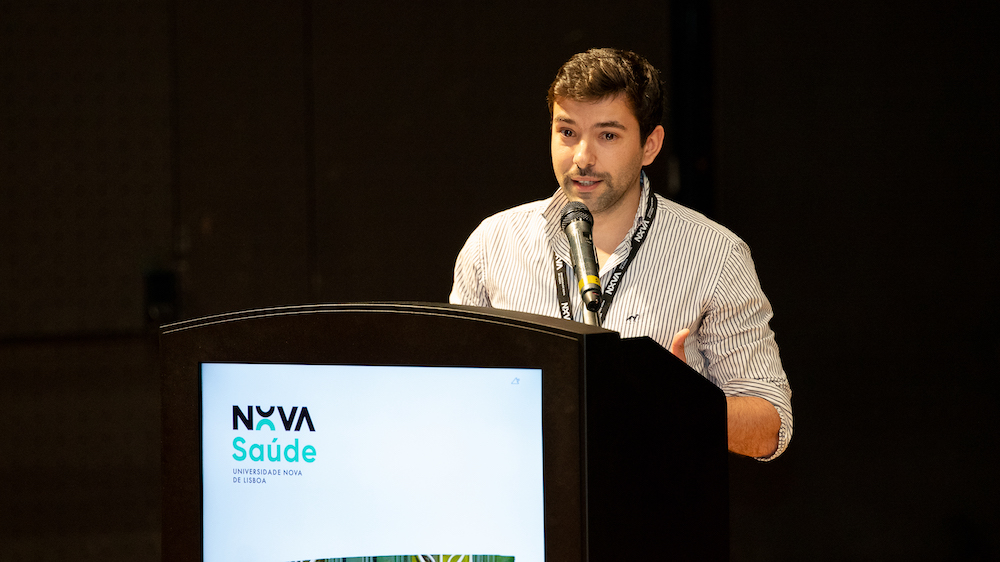
The third panel, “Challenges and advances around disease and ageing”, provided concrete examples of innovation. Diogo André Sequeira (NOVA Medical School) presented The Story-Telling Bag, the finalist project of the last NOVA Impact Challenge, which allows dialysis treatments to be carried out at home. “In addition to the comfort of not having to move, the therapeutic bag also tells a story,” he revealed, explaining that through medical analysis of its contents, it is then possible to monitor the patient’s health.
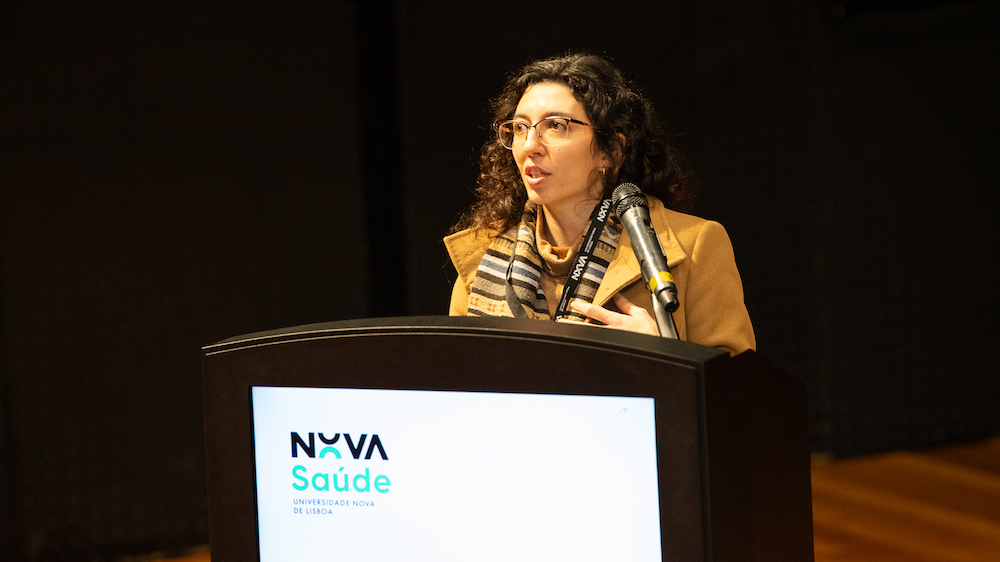
Tatiana Burrinha (also from NOVA Medical School) spoke about neuronal ageing and the risk of dementia, stressing the importance of science in finding solutions to delay cognitive decline and make this risk a distant memory.
Rethinking ageing
The conference ended with the round table “Innovating in ageing: Reflections and new directions”, moderated by Ana Fernandes (ENSP-NOVA) and with the participation of Carmen Garcia (nurse and columnist), António Fonseca (gerontopsychologist), and Susana António (co-founder of the association A Avó Veio Trabalhar).
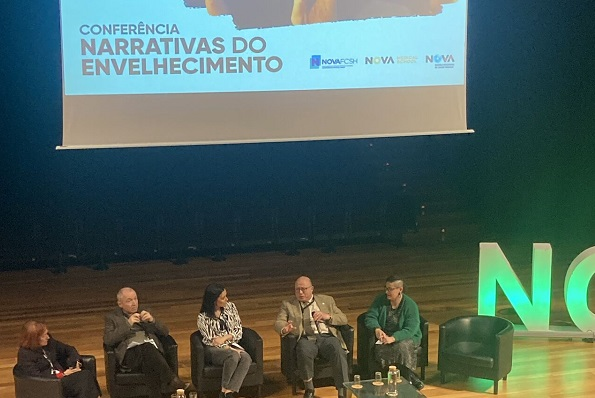
It was at this last moment that Jaime Branco, coordinator of the ageing research group at NOVA Health, warned about the structure of the health system: “Our health system is absolutely hospital-centred”. Carmen Garcia stressed the need for more dignity at the end of life: “There must be a better way to die than in a hospital bed.”
